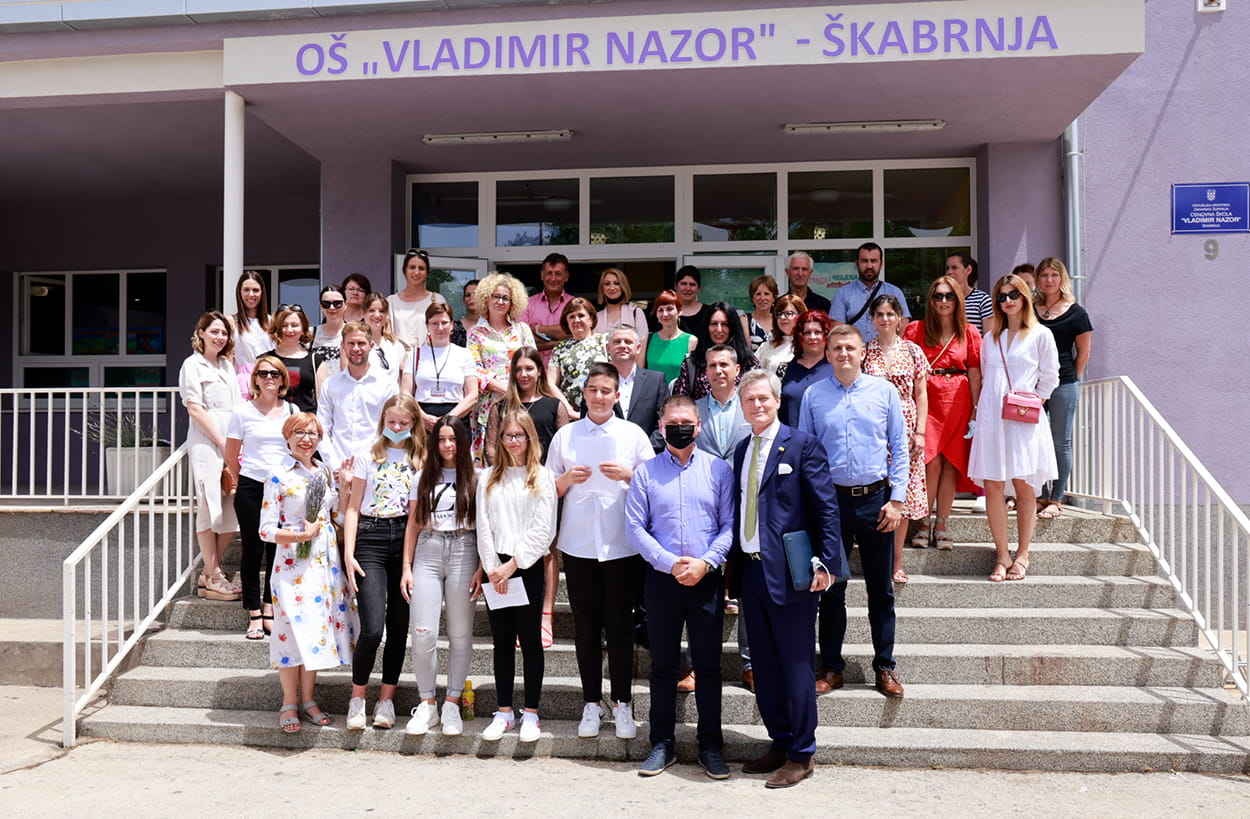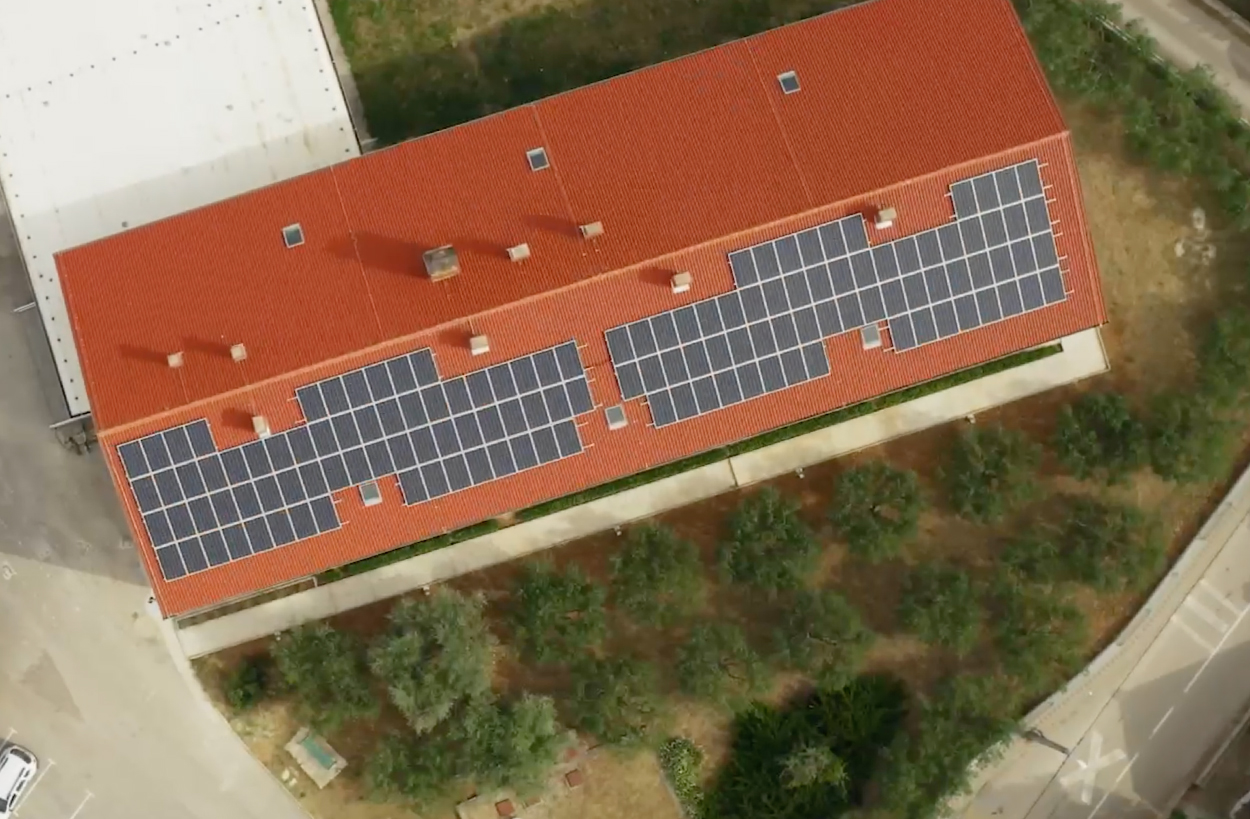In this quarter’s section of Youth in Action, we shed the spotlight on a wonderful success story from the Zayed Sustainability Prize’s youth-focused global high schools’ community. A vibrant category which has been shaping and empowering tomorrow’s sustainability leaders for nearly a decade by tapping into young people’s drive, creativity, and desire for real, grass root change.
Each year, six schools, from across six global regions, are eligible to win up to 100,000 USD to implement their projects spanning the categories of Health, Food, Energy and Water.
Through innovation and community stewardship, the Prize’s 41 Global High School winners representing approximately 45,000 students, have implemented projects that generated 7 million kWh of electricity, installed 500 kW of solar panels, and saved 5,500 tons of CO2, while benefiting 425,000 people in the wider communities.
The journey of the Vladimir Nazor School in Croatia’s southern Zadar County, that won the 2018 Zayed Sustainability Prize under ‘Europe’, is an inspiring admirable story.
The Zadar County village, like other parts of Croatia, was devastated by the tragic events of the Balkan Wars of 1991. The local community was left with a history of destruction, affecting people from all walks of life and disrupting vital services in the region for years.
The school’s winning project in 2018 presented a proposal to take advantage of the sunny climate of the village by installing a PV-T (photovoltaic and solar thermal system) to provide electricity and water heating to both the school and surrounding community.
In the years that followed the Prize win, the school pushed ahead with its ambitions, successfully completing their project, which today is generating 13,000kWh of electricity and 60,000kWh of heat on an annual basis.
Through this achievement, the school then moved from an energy Class D to a Class A as per the EU Energy Label to determine consumption and efficiency in the region. The targets set forth by the EU aim to significantly contribute to the EU's energy and climate targets.
As part of this success, the school also underwent a complete renovation last summer, leveraging the $100,00 Prize fund and complementing it from other funding sources that were made possible due to the international recognition that Vladimir Nazor achieved through the Prize. This included the EU Operational Funds Programme and the local county.
Leonarda Škara, a student at Vladimir Nazor said, “Winning this Prize meant and still means a lot to our small school. The world of sustainability is our future and events, competitions, and awards such as the Zayed Sustainability Prize are key to understanding the world of sustainability and the important implications it has on all of us.”
She continued: “Being part of this meant opening my eyes and widening my horizons and for that I will be eternally grateful. I truly believe that sustainability is the only way that we can live our lives if we want to survive and keep the Earth healthy. The opportunity for our small school to participate in something so big is a true game changer and I hope it serves as an encouragement to others to try, fight and challenge themselves because, as we can see, a lot of great things can come out of it.”
Principal Marin Pavicic, who personally escaped the war as a child, said, “We witnessed phenomenal transformation on two fronts in recent years. Firstly, a new era of hope and optimism came to our village and community after the successful implementation of the Zayed Sustainability Prize project. And now, the reopening of our school coincides with the summer solstice, representing a symbol of light and the new pathways it creates.”
As part of the recent transformation, the school also secured the newest generation of wireless networks, working closely with the Croatia government-run academic platform in charge of digital transformation for the education sector. This notable tech modernisation, which aims to provide a more seamless and effective learning experience, enabled the school to undergo a pilot project for LiFi (light fidelity), which uses solar LEDs for data transmission instead of radio waves. This positioned the school as one of the first in Croatia and in Europe to explore LiFi in the classroom. Furthermore, the renovation included the construction of a playground for 800 remote schools, serving approximately a thousand students across the country.
Gunter Pauli, a renowned author, teacher, and entrepreneur, who also serves as a Selection Committee member for the Zayed Sustainability Prize, attended an inauguration ceremony which took place this past June to mark the reopening of the school.
Mr. Pauli said, “By effectively deploying the funding received from winning the Zayed Sustainability Prize and transcending its value beyond the school to surrounding communities through the commendable rebuilding efforts, winning the award nearly 3 years ago has become a symbolic success story and a sign of renewed hope for the future. Just 5 years ago, the thought of anyone living in or visiting that area was impossible and we are all very happy to see this inspiring change firsthand.”
The inauguration event was also attended by Vesna Serepac, Director of the Directorate for Education at the Ministry of Science and Education, as well as various senior members of the local government. In her remarks, Ms. Serapc said: ''The Ministry of Science and Education is happy that students of the Vladimir Nazor School, from the small Zadar municipality of Škabrnja, won the Global High Schools award under the Zayed Sustainability Prize. The victory represented their commendable drive, passion and teamwork which resulted in a very creative sustainable agriculture project that competed globally.”
She continued, “We sincerely congratulate them, and thank the Government of the United Arab Emirates, which oversees the Prize, for declaring them the best among 370 schools from Europe in 2018.”
.svg?iar=0&hash=670E3638BC16C0DD69B262DD1184DEA8)


